In this post, I share the music of John Luther Adams, frequently identified as America's "eco-composer," and invite readers to let his music take you to a place of deep listening to the world around you. His music is rooted in place, particularly Alaska, where he lived for 40 years. But as he says, he has found music in the natural world all around him, wherever he has been:
"Music for me is a way to engage more deeply with this miraculous world that is the only home we will ever know. Over the years I’ve found music in the songs of birds, in the sweeping expanses of tundra, mountains and deserts and sea, in rock formations, in inuksuit—those stone sculptures that the Inuit have built for countless centuries in the Arctic. I’ve found music in rain fall, in meltwater dripping, in the sighing and tinkling of embers in a fire, glaciers falling and exploding into the sea, in wildfires, in waterfalls and tsunamis, in the resonant stillness of 40 below zero, and in the roar and hum of traffic on a city street. I find it all around me all the time, and I always have.
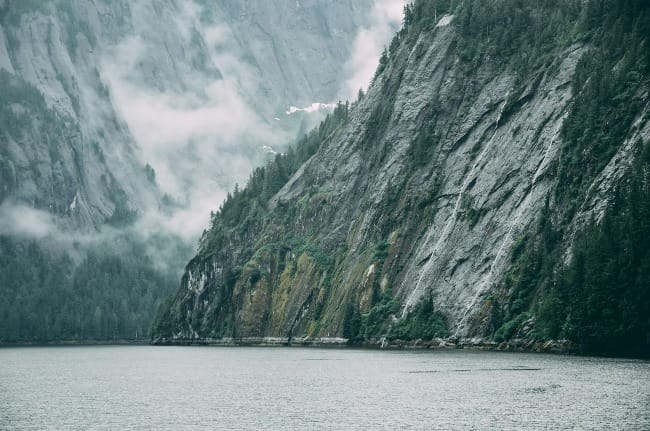
To step into this place of deep listening is to slow down, to let yourself become enthralled by something outside of yourself, and to loosen up the leash you normally keep your mind on, making space and time for contemplation and curiosity.
The four-minute music recording below is from the album The Wind in High Places, one of four Canticles of the Sky. This canticle, Sky with Four Moons, is a response to the phenomena that happens in the Arctic sky when the sun, at a low angle to the horizon, reflects off of ice crystals in the air, creating halos, arcs, and sundogs in the sky.
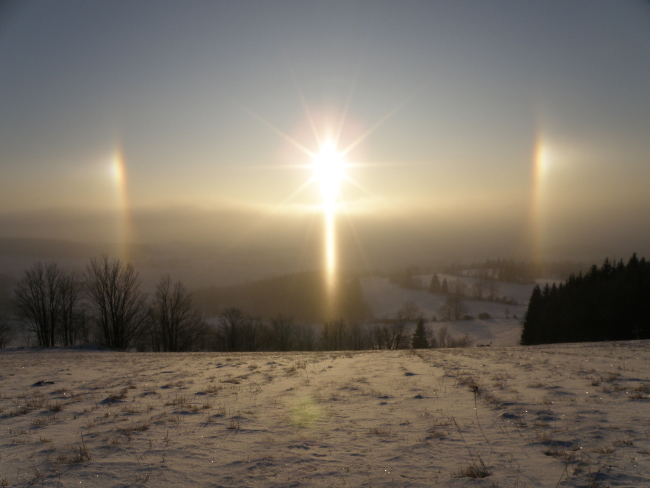
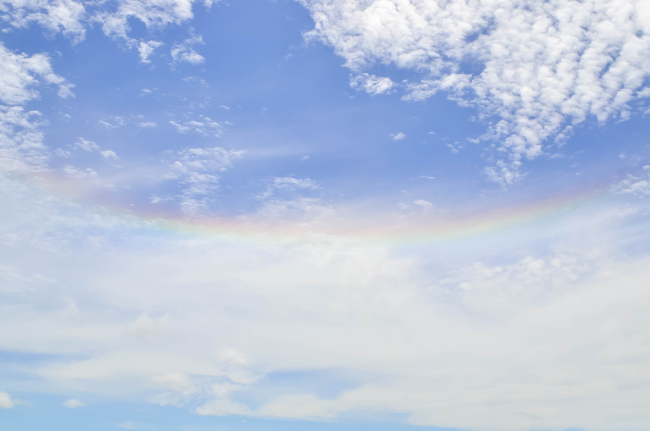
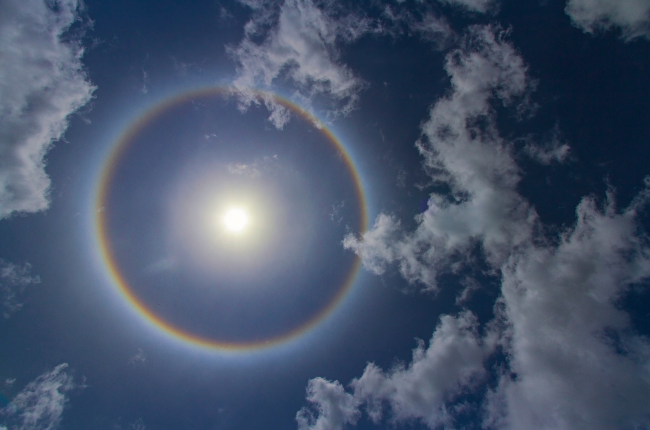
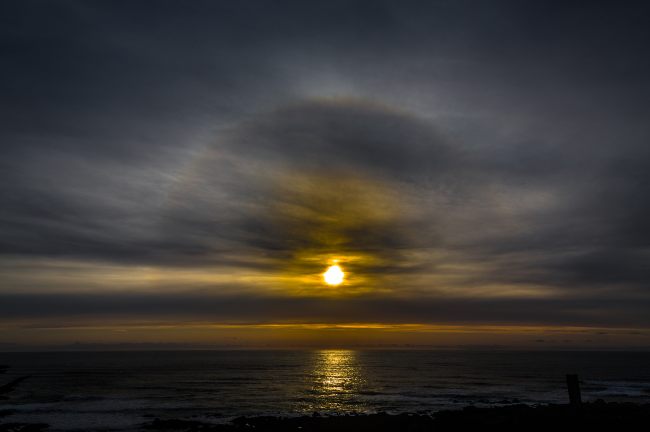
Sundog, circumzenithal arc, and halo.
The string instruments playing in the piece trace these phenomena across the sky, beginning with a low hum of cellos as the sun rises, building as the day progresses, and falling again as the sun sets.
As you listen, you may want to close your eyes and notice what images come into your mind. You could also bring this music outdoors, listening to it there, and find out how the music and the specific place where you are interact with each other.
Reflection Questions: What was your response as you listened? What sort of things did you hear about this world? Throughout your day, what kinds of sounds in the natural world particularly catch your attention? How does awe for the natural world change the way you live in it?
Feel free to comment below or contact me directly at info@circlewood.online.
Louise
To learn more about John Luther Adams, visit his website here.
If you would like a longer experience of John Luther Adams' music, I invite you to listen to this 42-minute recording of his 2014 Pulitzer Prize winning piece, Become Ocean.
